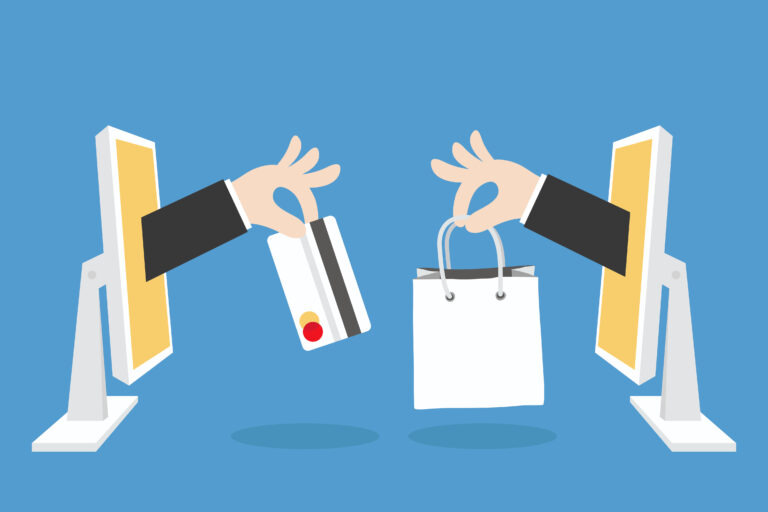Beyond Shopify: Exploring Alternative SaaS Solutions for E-commerce
Published: April 4, 2024 | E-Commerce Strategy

Shopify has long been a dominant e-commerce player, offering a comprehensive platform for businesses to establish and grow their online presence. However, as e-commerce continues to expand, savvy entrepreneurs and digital marketers are exploring alternative SaaS (Software as a Service) solutions that may better suit their unique needs and requirements. This article examines these alternative e-commerce platforms, highlighting their features, benefits, and potential use cases.
The Rise of Alternative E-commerce SaaS Solutions
The e-commerce industry has experienced exponential growth in recent years, driven by the increasing adoption of online shopping and the need for businesses to establish a strong digital presence. While Shopify has undoubtedly been a trailblazer in this space, offering a user-friendly and feature-rich platform, the demand for more specialized, customizable, and scalable solutions has led to the emergence of a diverse array of alternative SaaS options.
These alternative platforms often cater to specific industry verticals, offer advanced integrations with third-party tools, or provide more granular control over the e-commerce experience. By exploring these alternatives, businesses can find solutions that better align with their unique operational requirements, branding, and growth strategies.
Evaluating Alternative E-commerce SaaS Platforms
When considering alternative e-commerce SaaS solutions, there are several key factors to evaluate:
- Customization and Flexibility
One of the primary advantages of alternative platforms is their ability to offer a higher degree of customization and flexibility compared to more rigid, one-size-fits-all solutions. Businesses can often tailor the platform to their specific needs, whether it’s integrating with specialized software, implementing custom design elements, or automating complex workflows.
- Advanced Functionality and Integrations
Many alternative SaaS platforms boast a robust set of features and integrations that cater to the evolving needs of e-commerce businesses. This can include advanced inventory management, sophisticated analytics and reporting, seamless integration with popular payment gateways, and the ability to sync with various marketing and customer relationship management (CRM) tools.
- Scalability and Performance
As businesses grow, their e-commerce platform needs to be able to scale accordingly, handling increased traffic, transactions, and data processing. Alternative SaaS solutions often prioritize scalability, ensuring that the platform can adapt to the changing demands of the business without compromising performance or user experience.
- Industry-Specific Capabilities
Some alternative e-commerce SaaS platforms are designed with specific industries or business models in mind, offering specialized features and functionalities that cater to the unique requirements of those sectors. This can be particularly beneficial for businesses operating in niche markets or with complex supply chain management needs.
- Cost-Effectiveness and Pricing Models
While Shopify has established itself as a premium e-commerce platform, alternative SaaS solutions may offer more cost-effective pricing models, catering to businesses of various sizes and budgets. This can include flexible subscription plans, pay-as-you-go options, or even open-source alternatives that provide a high level of functionality at a lower cost.
Exploring Alternative E-commerce SaaS Platforms
Now that we’ve discussed the key factors to consider when evaluating alternative e-commerce SaaS solutions, let’s dive into some of the prominent players in this space:
WooCommerce
WooCommerce is a popular open-source e-commerce plugin for WordPress, offering a highly customizable and scalable solution for businesses of all sizes. With a vast ecosystem of extensions and integrations, WooCommerce provides advanced features such as:
- Robust inventory management
- Flexible order processing and fulfillment
- Seamless integration with popular payment gateways like PayPal, Stripe, and more
- Extensive customization options through WordPress themes and plugins
- Strong community support and a wide range of third-party add-ons
BigCommerce
BigCommerce is a comprehensive SaaS platform that caters to businesses of all sizes, from small start-ups to large enterprises. It offers a wide range of features, including:
- Advanced SEO tools for improved online visibility
- Robust analytics and reporting capabilities
- Multichannel selling options, allowing businesses to sell across various platforms
- Headless commerce capabilities for greater flexibility and customization
- Scalable infrastructure to handle high-volume traffic and transactions
Magento
Magento, now owned by Adobe, is a highly customizable and scalable e-commerce platform that is often favoured by larger businesses and enterprises. It offers a powerful set of features, including:
- Advanced catalogue management and complex pricing rules
- Extensive third-party integrations with popular business tools
- Robust B2B functionality for wholesale and enterprise-level operations
- Sophisticated marketing and merchandising capabilities
- Scalable architecture to support high-volume e-commerce operations
Squarespace
Squarespace is a versatile SaaS platform that combines e-commerce functionality with a strong emphasis on website design and content management. It offers:
- A user-friendly interface and a wide range of visually appealing templates
- Seamless integration of e-commerce capabilities into the website builder
- Built-in marketing tools, such as email campaigns and social media integration
- Simplified website management and hosting, making it accessible for non-technical users
- Scalable pricing plans to accommodate businesses of different sizes
Volusion
Volusion is an e-commerce SaaS platform that focuses on providing a comprehensive suite of tools for small to medium-sized businesses. It offers features such as:
- Intuitive inventory management and order processing
- Integrated marketing tools, including email campaigns and SEO optimization
- Multichannel selling options, including social media and marketplaces
- Customizable storefront design and branding
- Dedicated customer support and a wide range of educational resources
As e-commerce continues to evolve, the exploration of alternative SaaS solutions has become increasingly important for businesses seeking to differentiate themselves, optimize their operations, and drive growth. By evaluating the unique features, capabilities, and cost-effectiveness of these platforms, e-commerce entrepreneurs and digital marketers can find the solution that best aligns with their specific requirements and long-term goals.
If you’re interested in learning more about how these alternative e-commerce SaaS platforms can benefit your business, we encourage you to connect with the team at geekspeak Commerce. Our experts can provide personalized guidance and support to help you navigate the ever-changing e-commerce ecosystem and identify the right solution for your needs.







